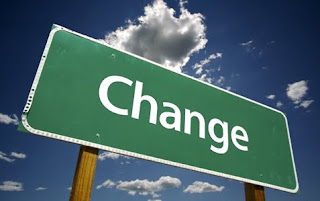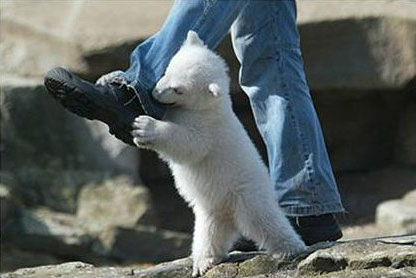
The struggle for “Change Reality”
The only thing constant in life is Change. Our mother earth is revolving Day and Night.
Night turns to day. Day turns to night. Everything is ever moving, ever changing.
Try as we might, we can't capture the moment. But we can live in the moment by being here now and focused on the task at hand.
Most of us grow up with the belief that in order to succeed we must study hard, work hard, try hard and only then will we get the rewards and financial return for all that effort.
The only thing constant in life is Change. Our mother earth is revolving Day and Night.
Night turns to day. Day turns to night. Everything is ever moving, ever changing.
Try as we might, we can't capture the moment. But we can live in the moment by being here now and focused on the task at hand.
Most of us grow up with the belief that in order to succeed we must study hard, work hard, try hard and only then will we get the rewards and financial return for all that effort.
- Where did we learn that it must be so difficult?
- Was life really meant to be this constant struggle from the cradle to the grave?
I believe not, but the struggle to survive is programmed into each individual, each race, each community, each country, alongside the belief that there will never be enough to go round.
No lasting peace at another's expense
Therefore we spend all our lives chasing the things that there will never be enough of, defeating any opposition along the way, defeating any pro-government along the way, defeating any party who against your ideology, defeating one another to become the best and so on.
We play out this experience every day as Natives and as individuals and/or as States and as races.
We, Dayak, and even alliance with others to encroach/assimilate/systematically acquire other peoples’ assets/resources/lands and mash the pro-opposition and/or pro-government along the way because we are full of fear about our own survival.
We haven't yet learned that lasting peace and/or harmony will never come at the expense of another.
These predominantly fear based energies needs to come into balance with a more compassionate energy in order to ensure a peaceful existence for us all.
How?
No lasting peace at another's expense
Therefore we spend all our lives chasing the things that there will never be enough of, defeating any opposition along the way, defeating any pro-government along the way, defeating any party who against your ideology, defeating one another to become the best and so on.
We play out this experience every day as Natives and as individuals and/or as States and as races.
We, Dayak, and even alliance with others to encroach/assimilate/systematically acquire other peoples’ assets/resources/lands and mash the pro-opposition and/or pro-government along the way because we are full of fear about our own survival.
We haven't yet learned that lasting peace and/or harmony will never come at the expense of another.
These predominantly fear based energies needs to come into balance with a more compassionate energy in order to ensure a peaceful existence for us all.
How?
- By finding levels of tolerance and acceptance as multi-ethnic Dayaks, as multi-races, as multi-cultures, as multi-adats, as multi-customs, as multi-religions, as multi-parties, as multi-organizations, multi-states and as individuals that we have never found before.
- By celebrating peoples differences and beliefs.
- By understanding that our way is not the best way.
- By understanding that our way is not the only way.
- By understanding that their way is just another way.
- By letting go of fear and anger and opening channels of real communication and mutual understanding.
Thought affects Belief
When we hold anger in our energy field, we send out waves of energy that create turbulence in the atmosphere. This anger gathers momentum as it hits all the other anger that's held in the planet and ensures that the cycle continues.
So the Natives hate the Malays. The Ibans hate the Ibans. The non-Bumiputrass hate the Bumiputras and vise-versa. The Bidayuhs hate the Ibans and vise-versa, and the much hatred.
Where are all these getting us?
When we hold anger in our energy field, we send out waves of energy that create turbulence in the atmosphere. This anger gathers momentum as it hits all the other anger that's held in the planet and ensures that the cycle continues.
So the Natives hate the Malays. The Ibans hate the Ibans. The non-Bumiputrass hate the Bumiputras and vise-versa. The Bidayuhs hate the Ibans and vise-versa, and the much hatred.
Where are all these getting us?
- Well nowhere!
- Well no end!
- Well no lasting!
- Well no nothing!
When we continue to hold onto anger, envy, ‘kapapas’, egocentrism and blame, it prevents us from taking responsibility for our part in the drama.
When we all have the same beliefs, the same energy, the same focus, the same common cause, we create waves that make up the belief system of our own dream world or even the whole planet.
Every thought we think has an effect on that belief system. Each negative thought(s) ensures that things remain the same and nothing ever changes.
Technically, Change doesn't happen overnight. It happens over time and some times. One small step is all it takes.
If enough of us take one small step to change, then this turns into one big step in the planet. These new thought forms will be sent into the planetary belief system and hey presto real change begins to happen.
In time, we all begin to see life differently and behave in a more loving way as individuals and as countries. We might even give our aid to other countries compassionately, as opposed to acting out of self-interest.
A Nation of chaos – Native of chaos
When we all have the same beliefs, the same energy, the same focus, the same common cause, we create waves that make up the belief system of our own dream world or even the whole planet.
Every thought we think has an effect on that belief system. Each negative thought(s) ensures that things remain the same and nothing ever changes.
Technically, Change doesn't happen overnight. It happens over time and some times. One small step is all it takes.
If enough of us take one small step to change, then this turns into one big step in the planet. These new thought forms will be sent into the planetary belief system and hey presto real change begins to happen.
In time, we all begin to see life differently and behave in a more loving way as individuals and as countries. We might even give our aid to other countries compassionately, as opposed to acting out of self-interest.
A Nation of chaos – Native of chaos
- Most of us don’t like transformation.
- Most of us don’t like reformation.
- Most of us don’t like adaptation.
- Most of us don’t like politics of development.
- Most of us don’t like politics of change.
- Most of us don’t like Change because it’s “New” and/or “Opposition Ideology”
- Most of us don’t like Transformation because it’s “Assimilation” and/or “Pro-Government Ideology”.
- Most of us don’t like cronyism and/or nepotism.
- Most of us don’t like corruption and/or injustice or double standard policy or even “business kantau” or “big business” or “brokering kick-back” or “business/political bribes”.
- Most of us don’t like politics and/or economics.
- Most of us don’t like privatization and/or ‘parameterizism’ concept of development.
- Most of us don’t like bumiputraism and/or capitalism.
- Most of us don’t like Malayanism and/or Colonialism.
- Most of us don’t like Unity and/or Division or even “Status Quo”.
- Most of us don’t like Dayakism and/or racism.
- Most of us don’t like each other....Ooop!
We fear it and resist it. We are content with the familiar and wear it like an old coat that we have kept for years. We are so programmed to resist.
Ask us to do something new and automatically we think of 10 good reasons why we can't do it, as opposed to 10 good reasons why we can.
Ehhh....anang ka ngereja nya nuan Buyau.....sigi nadai ulih nya Buyau.....
The trouble is, like it or not, things are changing at breakneck speed right now. We are living in a world in chaos. Our resistance to Change is being severely challenged as all our previously safe structures are crumbling.
Organizations’ nationwide and worldwide are restructuring and people are losing their jobs, become landless and homeless as never before. We must prepare for this Change and Transformation because there maybe more to come!
Remember that all life goes in a constant cycle of death and rebirth, and while some do belief in reincarnation. What seems like death right now is really an opportunity for rebirth.
Sometimes we are given opportunities for growth and sometimes we are given possibilities and/or authorities for betterment that may not have happened had things remained the same.
The universe has ways of making us notice what we previously refused to look at.
Ask us to do something new and automatically we think of 10 good reasons why we can't do it, as opposed to 10 good reasons why we can.
Ehhh....anang ka ngereja nya nuan Buyau.....sigi nadai ulih nya Buyau.....
The trouble is, like it or not, things are changing at breakneck speed right now. We are living in a world in chaos. Our resistance to Change is being severely challenged as all our previously safe structures are crumbling.
Organizations’ nationwide and worldwide are restructuring and people are losing their jobs, become landless and homeless as never before. We must prepare for this Change and Transformation because there maybe more to come!
Remember that all life goes in a constant cycle of death and rebirth, and while some do belief in reincarnation. What seems like death right now is really an opportunity for rebirth.
Sometimes we are given opportunities for growth and sometimes we are given possibilities and/or authorities for betterment that may not have happened had things remained the same.
The universe has ways of making us notice what we previously refused to look at.
- Why have our elders (Sarawakians/Sabans) decided to join the Federation of Malaya to form Malaysia?
- Why have we and our Native leaders agreed to be accepted into “Bumiputras Status”?
- Why have we and our Native leaders agreed to drop out the word “Dayak” instead of being call as Native or Dayak?
- Why have we and our Native leaders plausibly denial the roles of our “Adat System”?
- Why have we and our Native leaders support the “New Sarawak Land Ordinance” and limit our rights and privileges over any Native Communal Reserve?
- Why have we and our Native leaders ignore our “Native Court” power, legislation and jurisdiction?
- Why have we and our Native leaders failed to incorporate our “Native Rights, Adat Law, /Policy, Privileges and Bumiputra Equity/Quota” in the governmental constitutions and policies?
- Why we and our Native leaders keeping silence on our Unity, advantages and disadvantages?
And the many “Why”?
Expand your awareness
Our outer world is merely a reflection of our inner world. We cannot love or hate something about anybody else without loving or hating it in ourselves.
This applies to us as countries as well as individuals. Anything negative that comes our way is always a reflection of our own thoughts, attitudes and beliefs, individually or collectively.
I believe it's time to expand our awareness on this. We must always question how we have created the circumstances of our lives. Only when we question, do we open our heads to seeing it another way.
Then we are on the path to true self- awareness, self- empowerment, self-esteem, self-confidence and self-determination, changing our words, our thoughts our actions.
True empowerment comes from within, not from an outer source at the expense of another.
Expand your awareness
Our outer world is merely a reflection of our inner world. We cannot love or hate something about anybody else without loving or hating it in ourselves.
This applies to us as countries as well as individuals. Anything negative that comes our way is always a reflection of our own thoughts, attitudes and beliefs, individually or collectively.
I believe it's time to expand our awareness on this. We must always question how we have created the circumstances of our lives. Only when we question, do we open our heads to seeing it another way.
Then we are on the path to true self- awareness, self- empowerment, self-esteem, self-confidence and self-determination, changing our words, our thoughts our actions.
True empowerment comes from within, not from an outer source at the expense of another.
- Respect for self.
- Respect for others.
- Responsibility for all our actions.
These 3x Rs will bring us to levels of achievement, previously thought impossible. Think it isn't easy? It is!
Conclusion
It's as easy as we want it to be. We can have it all. As we think, so we can create. One by one we can change our world and our own dream becomes a reality.
So let us begin together. It's a new day for every one!
Thank you.
Conclusion
It's as easy as we want it to be. We can have it all. As we think, so we can create. One by one we can change our world and our own dream becomes a reality.
So let us begin together. It's a new day for every one!
Thank you.












